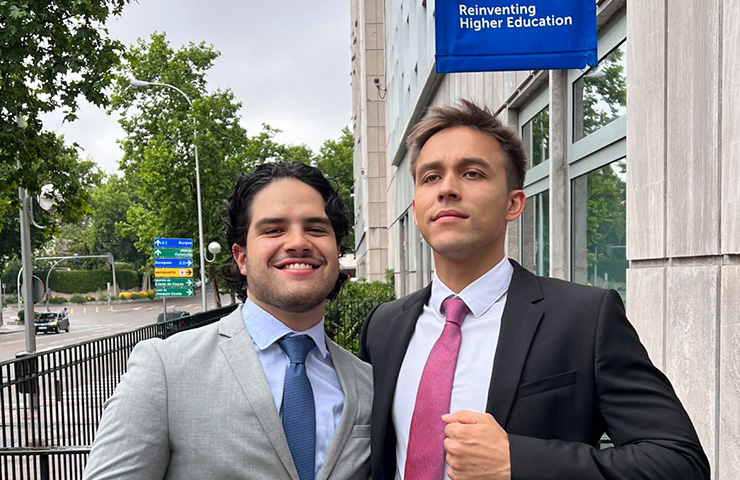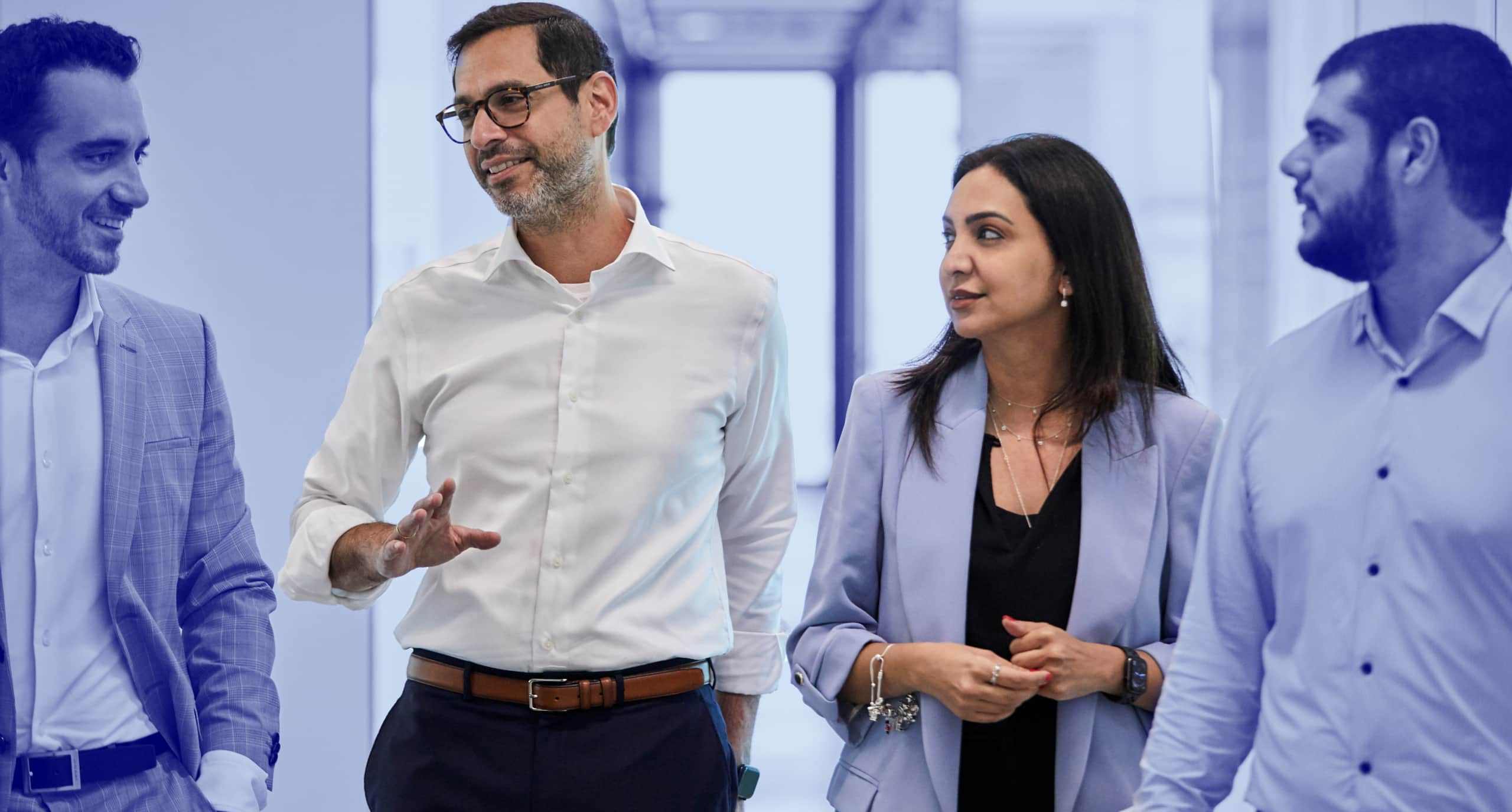Ready to fine-tune your financial skills? IE Business School’s Master in Finance is designed to give you practical, hands-on experience with the modern financial landscape, priming you for success in the real world. At the end of the program, you’ll complete a final project based on their personal and professional interests. This demonstrates your learnings and helps upskill expertise for your chosen path. You’ll be exposed to the inner workings of the financial sector throughout the program. But your final project will go a step further by tasking you to turn your ideas into reality. Let’s take a look at how two students stepped closer to their goals in unlocking the next best version of themselves.
Harnessing tech in finance
Master in Finance students Gian Gael Gonzalez Büchsenschütz and Aleksei Fedotenkov based their project on innovations born from artificial intelligence and machine learning technologies.
They specifically used recurrent neural networks, which they fed with massive amounts of economic, financial and market data. As a result, these students built a custom algorithm. This allowed them to predict the probability of default by any firm in one year.
Gael and Aleksei were also able to compile a list of unique parameters that can be employed to determine the weight of different data points in predicting defaults. What’s more, they managed to prove their algorithmic model’s utility in a wide range of applications.
Guidance to build their financial skills
This year, adjunct professor Antonio Rivela led Gael and Aleksei through their final project. This involved helping to break down complex mathematical concepts into easily understood pieces. Thanks to his support, the pair were able to dive straight into the testing phase of the project as they already had a strong grasp of the relevant theory from the beginning.
Both are particularly thankful for Antonio’s Financial Programming class. They say it was the perfect introduction to Python programming knowledge for the finance industry. Gael and Aleksei also credit their chosen specialization track, Financial Analytics & Digital Finance, with providing them a firm foundation in machine learning algorithms through the AI and Deep Learning in Python course.
Having this strong programming background played a big role in Gael and Aleksei successfully executing their final project. However, what really set them apart was their drive to go beyond course content and dig deeper into the latest developments in the field.
Further, their thirst for knowledge empowered them to withstand failures and remain levelheaded under stress. They were consequently well-equipped to adapt to risk and pursue constant improvement of their design. “By the time you’re starting the final project, you are already resilient,” Master in Finance student Gael says, adding, “If your algorithm suddenly stops working, as ours did, you know what is going on and that it’s somehow going to work out.”
A network of support
This project wouldn’t have been possible without the comprehensive datasets collected and compiled by past and current students in the Bloomberg Terminal. Gael and Aleksei had access to the latest data, going back five years, to train their default probability prediction model. These financial skills are invaluable for modern industry.
Departing from traditional research methods, they took a more hands-on approach when deciding what to do with the results of their final project.

In their own words, they “shopped around for investors or professionals who consult for debts and SMEs” who could use the algorithm to assess interest rates or debt maturities. The model can also be adapted to evaluate personal loans.
Gael explained that, far from being merely theoretical, their model “opens up a lot of doors to the practical world.” Its flexibility means that it has many applications in the financial and commercial sectors. Of course, pitching their algorithm to real companies and investors gave these students the opportunity to represent IE Business School. It also meant networking and raising their professional profiles—Gael and Aleksei received a warm welcome from the local financial community. This was thanks to the school’s stellar reputation and their chance to develop their financial skills.
Overcoming unique challenges with their newfound financial skills
That said, this effort also posed some issues for the innovative students. Gael and Aleksei aimed to build upon the success of a previous project—value added that would make it more accurate in predicting how many companies would default. But given the number of similar initiatives around, the pair had their work cut out for them from the start. As such, they had to negotiate a competitive and challenging financial market. They were trying to establish a business in a difficult field, surrounded by big players in the industry. Aleksei explains that by targeting smaller or emerging markets or focusing on personal loans—something big banks don’t oversee directly—their project stood out.
And it’s clear that they were successful in their final project: Gael and Aleksei’s algorithm managed to achieve an 81% success rate in predicting debt default and bankruptcy. Plans are already in the works to tweak the algorithm to further boost this figure.
Want to launch a successful career in finance? It’s essential to start gaining real-world experience as early as possible. The Master in Finance will immerse you in a wealth of opportunities to help kickstart their academic and professional career. And that means a well-honed edge to excel in your desired field.
Looking for a way to stand out in the competitive and rapidly changing world of finance?
Launch yourself into global success with a Master in Finance designed to give you a taste of the real world.






